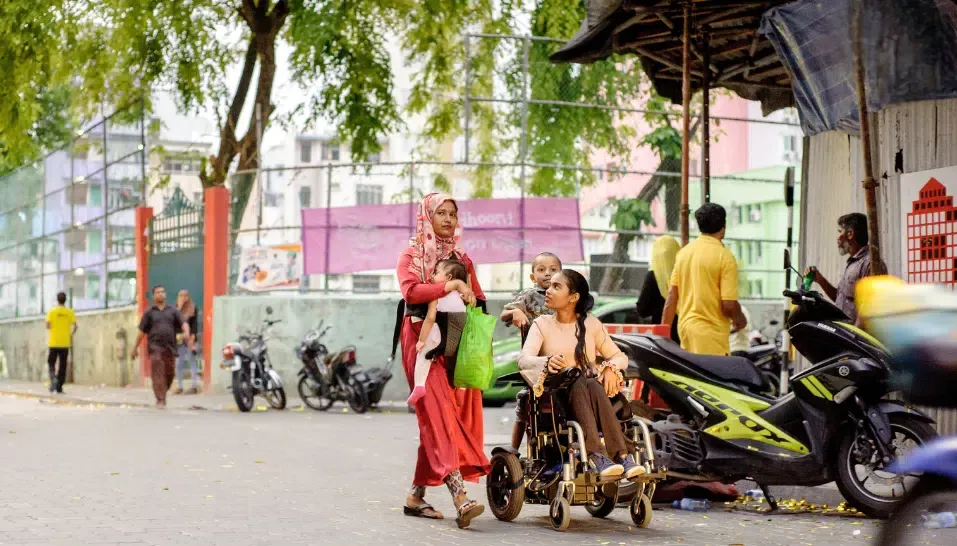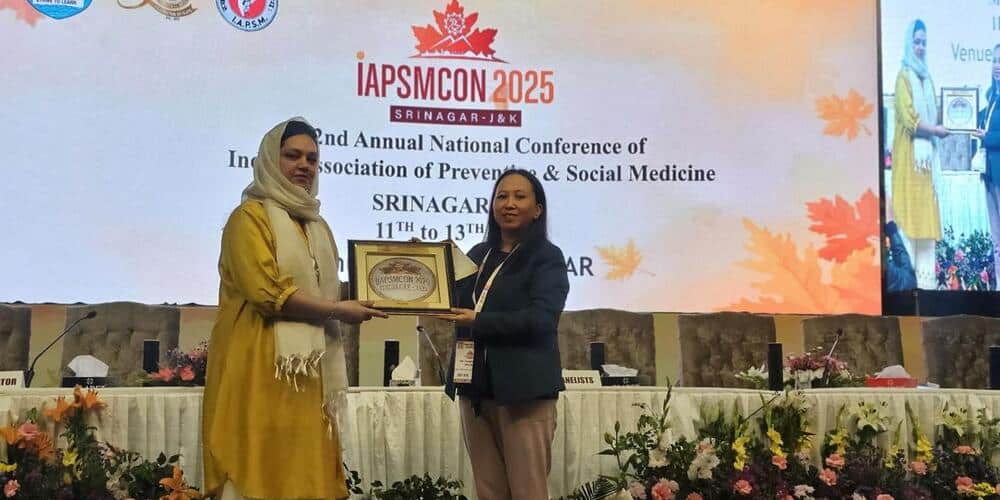Lack of data is denial of rights of persons with disabilities
Author
Author
- admin / 2 years

- 0
- 4 min read

Author
Without a clear understanding of the actual number and specific needs of people with disabilities, the effective enforcement of the policies remains a challenge
As India takes on a global leadership role during its presidency of the G20, aiming to create an equal world and uphold the vision of Vasudhaiva Kutumbakam, one marginalized sector continues to be neglected – persons with disabilities.
In order to foster inclusivity, it is crucial to ensure equitable growth across all segments of society. But accurate data is essential for effective policy implementation and further development, as it enables justifiable allocation of resources.
It is in this backdrop that the exclusion of disability-related questions from the upcoming National Family Health Survey (NFHS-6) may seem highly unjustified and regressive. This omission not only disregards the rights and needs of millions of persons with disabilities but also undermines the commitment towards achieving the Sustainable Development Goals (SDGs). By denying the essential need to collect data on disability, policymakers are essentially turning a blind eye to the challenges faced by this marginalized population.
The glaring gaps between the available data and the true number of disabled individuals are both shocking and unacceptable. According to the latest findings from the previous NFHS, the percentage of people with disabilities in India has decreased to 1 percent between 2019 and 2021. The data reflects a significant decline from the estimated 2.2 percent (26.8 million individuals) reported by the Indian Census in 2011.
The NFHS-5 data was flawed because its questions aimed to assess only five categories of disabilities, namely locomotor, visual, hearing, speech, and mental disabilities. It is important to note that this is a reduction from the seven disability categories recognized in the 2011 Census and significantly lower than the 21 categories acknowledged by the RPWD Act 2016.
However, rather than focusing on enhancing the quality of data and addressing the striking omission of the 21 disabilities that were inexplicably disregarded in NFHS-5, it is disheartening to witness NFHS-6 completely setting aside the specific health concerns of an entire population. This neglect perpetuates a systemic failure to recognize and address the needs of persons with disabilities.

Government initiatives and the disconnect
Despite the government’s regular mention of inclusivity and disability rights, there is often a disconnect between their words and actions. The exclusion of disability-related questions in NFHS-6 and the absence of a Disability Inclusive SOP highlight this disparity. The Ministry of Health’s reliance on inadequate advisories contribute to these shortcomings in data collection and implementation.
Unjustified justifications
The justifications provided by the authorities for dropping disability-related questions from NFHS-6 are far from satisfactory. The recent official memorandum dated June 22, 2023, from the Ministry of Health and Family Welfare attempts to justify the exclusion of disability issues from the NFHS in a manner that lacks conviction.
One of the arguments offered is that the data pertaining to disabilities is already present in the reports of NSS 76 round, hence, rendering the inclusion in NFHS unnecessary. Additionally, the memorandum disturbingly asserts that disability estimates do not experience significant changes over a short period, implying that there is no need to collect data on this aspect every three years.
The role of legislation and lack of statistic
It is crucial to understand that India boasts the powerful RPWD Act 2016, which provides a comprehensive framework for protecting the rights of disabled individuals. However, in the absence of accurate and updated statistics, the implementation of this legislation becomes difficult.
Without a clear understanding of the actual number and specific needs of people with disabilities, the effective enforcement of the policies remains a challenge. For instance, in this year’s budget, there was a reduction of Rs 90 crore in the expenditure cap for the Scheme for Implementation of the Rights of Persons with Disabilities Act.
The omission of disability issues from NFHS-6 reflects a lack of transparency and accountability as our Right to Information (RTI) requests remain unanswered regarding the rationale behind the exclusion of disability-related questions. Media statements regarding this matter are disappointingly vague and evasive, failing to provide a satisfactory explanation.
India’s presidency of the G20 subjects it to global scrutiny, and the exclusion of disability-related questions from the NFHS undermines its reputation as an inclusive and equitable government. This regressive step contradicts the expectations from a country holding such a prominent position on the international stage.










